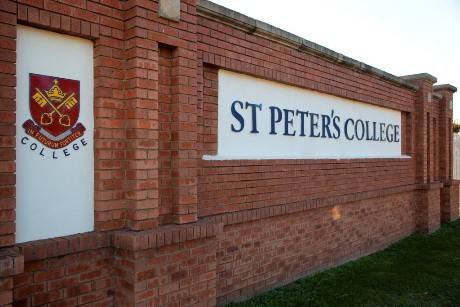St Peter's College Council Subcommittee Interim Communication

As set out in our letter of 6 June 2020, the Council Sub-committee has been established to look into racist, sexist and other forms of discrimination and related matters at St Peter’s College. The Committee met on 13 June 2020 to consider submissions from concerned parties.
This communication seeks to update the St Peter’s College Community on the Committee’s progress to date, and should by no means be considered its final report.
SUBMISSIONS RECEIVED
The Commission received submissions as follows:
Written Submissions Oral Submissions
Students 13 9
Alumni 1(30 cases) 2
Parents 20 1
Staff 1 0
TOTAL 35 12
Generally, the submissions received related primarily to allegations of racism perpetrated by members of the St Peter’s College Community, as well as institutional racism at the College. These have not been corroborated or verified by the Committee as yet, and no person is as yet facing formal charges.
Submissions were received from all races and genders but were mainly from students in the higher grades. We would encourage others to feel free to make submissions to spcsubcom@gmail.com or (if intended as an anonymous submission) to spcsubcomchair@gmail.com
GENERAL OBSERVATIONS
Based on the submissions received to date, the Committee is encouraged that there is a generally constructive approach to addressing problems at the College. The majority of parties that have come forward are seeking understanding, tolerance and mutual respect, as opposed to mere retribution. This is not to suggest that racism and sexism are not issues at the College, or that the Committee has not been alerted to certain concerning issues. The Committee is encouraged that such issues are being surfaced and receiving due attention – at the College, in our communities and globally.
South African independent schools are now more than ever being asked to explain and account for their stance on race relations and other matters. This is triggering long-overdue conversations that, conducted free of bias, can only serve to creating healing in a time of divisiveness and hurt. While there is consensus on the need for much greater diversity and inclusion across the education sector, the College can only deal with members of its student body and staff complement and is committed to doing so. Should the need arise to deal with external parties, the College will, of course, assert its rights, legal and otherwise, as deemed appropriate.
The Committee would like to stress that it is not running the College and has no involvement in any disciplinary action taken by the College, including two recent suspensions. Without suggesting anyone should refrain from asserting their rights, the Committee believes it is possible to resolve issues with tolerance and mutual understanding. The Committee would like to point out that defamation lawsuits should be carefully reconsidered, as defamation requires a proven falsehood. That is to say, by law, no one can be defamed by truth or a valid opinion. As such, it is important to carefully consider proceeding with court action given the statutes of the law.
Certain issues have been highlighted that suggest institutional bias within the College and its structures. Many similar matters have surfaced at other schools and some have co-educational peculiarities, thus affecting a College like ours. The Committee has brought these concerns to the College Executive’s attention for comment and will make recommendations on how these might be addressed.
Some individual behaviour has been highlighted as inappropriate. This ranges from racist slurs and deliberate use of particular accents to derogatory terminology and insensitive comments on South Africa’s history, its people’s backgrounds and their social status. Where this behaviour appears intentionally insensitive or hurtful, it will be dealt with accordingly. Most instances of such behaviour point more to ignorance or ill-placed/inappropriate “humour”. The Committee’s final recommendations will include propositions on how the culture at the College can be changed, through greater diversity and inclusion interventions aimed at raising awareness of and tackling unconscious bias and micro-aggressions. In the meantime, we would ask all to self-reflect and to consider not what their words or actions are and how they are intended, but rather how they are perceived and received by others, especially those from different backgrounds.
The Committee is heartened that, while the submissions were of a serious nature, they nonetheless indicate all is not lost and that there is no matter that cannot collectively be addressed. The College has much to be proud of, in as much as it needs to work on different areas of concern. The Committee urges all to focus on moving forward in the interests of building a better St Peter’s College and creating and sustaining a healing atmosphere where all can thrive and feel valued and included.